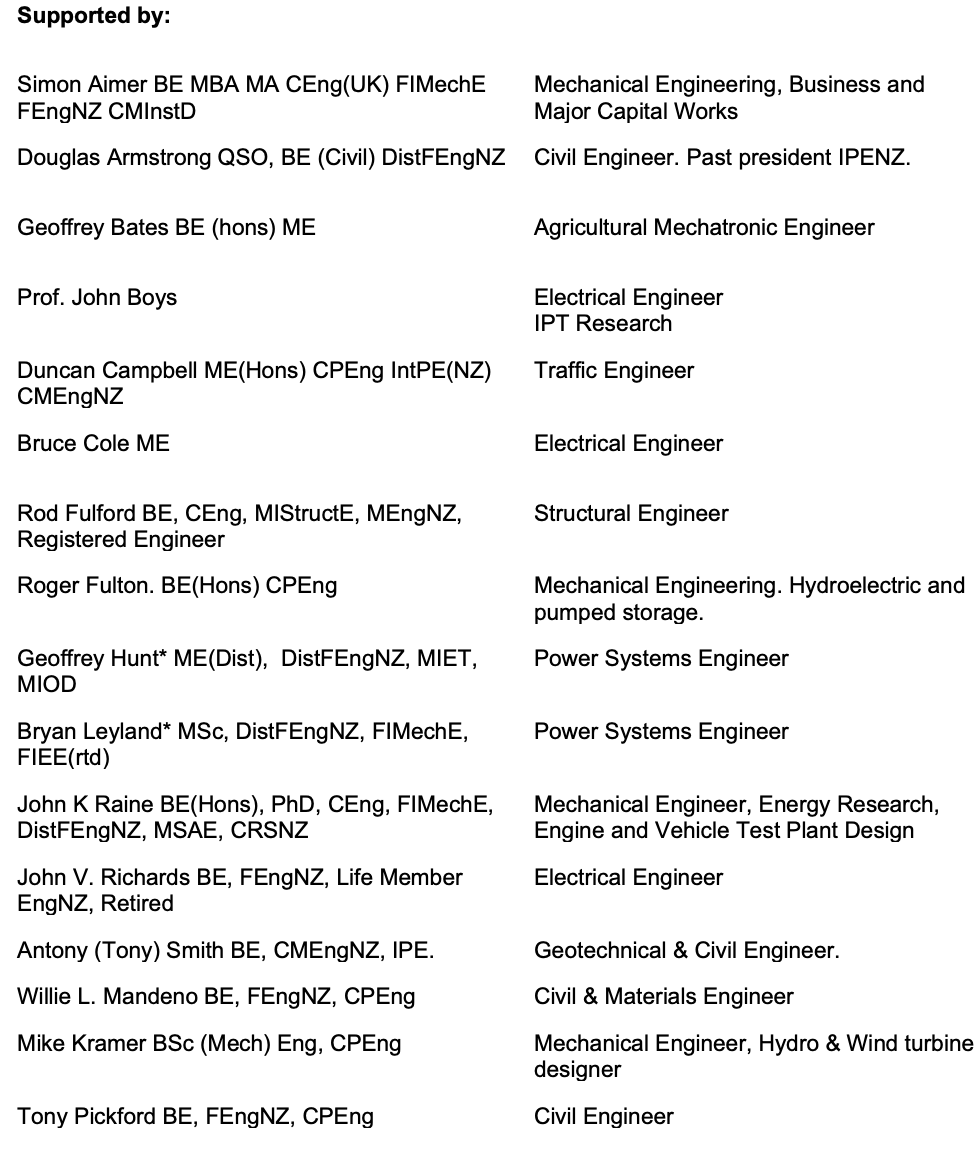Table of Contents
Professor Michael J Kelly FRS FREng
Emeritus Prince Philip Professor of Technology
The Department of Engineering Electrical Division, 9 JJ Thomson Avenue, Cambridge CB3 0FA, UK.
Tel: +44 (0) 7876 251404 Fax: +44 (0) 1223 332662 mjk1@.cam.ac.uk
12 July 2021
The Prime Minister,
New Zealand. j.ardern@ministers.govt.nz
Dear Prime Minister
The Climate Change Commission’s Advice Needs an Engineering Review
I am writing this letter with the support of a group of experienced engineers who have all brought multi-million-dollar projects to successful conclusions. I have determined that the advice of the Climate Change Commission requires that three key engineering projects must be completed well before 2050:
1. Electrifying ground transportation;
2. Electrifying industrial, commercial and residential heat;
3. Constructing a major increase (~75%) in the capacity of our electricity generation, transmission and distribution systems to provide the power needed for projects 1 and 2.
I have carried out a comprehensive study of the resources of people and materials needed between now and 2050 and estimate the cost at about $600 billion for these projects.1 It is my view that the Climate Change Commission’s aspirations are not achievable in the time frame, may not be the most cost effective, and may not contribute to lowering global CO2.
- The Climate Commission’s advice is critically dependent on a positive outcome from the NZ Battery Project study if coal and gas fired generators are to be closed. The cost and feasibility of such energy storage has a high degree of uncertainty.
- Experience indicates, based on the $600 billion project cost, that 1,000 extra professional engineers and 4,000 extra highly skilled construction staff would be required quickly, and for 30 years, to deliver the projects. With current staffing shortages, the resource demand from the increase in infrastructure project spend and global demand for staffing similar projects, it appears unlikely the resources will be available to deliver the projects in the time frame required.
• With similar projects happening around the world, it is likely that the equipment and resources needed for the NZ projects will be in short supply and expensive.
There will be other ways to achieve the overall objectives and I strongly recommend that the Government considers all options. The obvious one is the Emissions Trading Scheme which, as the Commission admits, is capable of producing a significant reduction in emissions. Another option is to accelerate the replacement of our ageing motor vehicles with newer vehicles with much lower emissions.2 Consider exploiting our gas resources to reduce the amount of coal, deploying nuclear power, which is reliable, clean and safe, and distributed energy resources (DER).
We strongly recommend that the government uses the time window until April 2022 to carry out:
- an engineering review of the advice provided by the Climate Change Commission aimed at the addressing the challenges we have identified;
- an analysis of the costs and benefits if the Commission’s advice is followed;
- an analysis of other options for reducing emissions of man-made greenhouse gases in a way that benefits New Zealand and the world. If you need assistance with these studies, those of us who are willing and qualified to assist have an asterisk after their names in the list below.
Yours sincerely,
Signed,
Michael J Kelly.

1 http://www.bryanleyland.co.nz/climate-commission.html
2 Engines with even lower emissions and better fuel consumption will soon be available: https://achatespower.com
Please share so others can discover The BFD.









